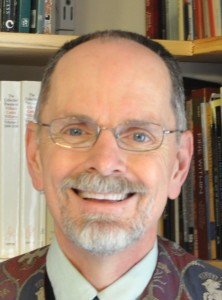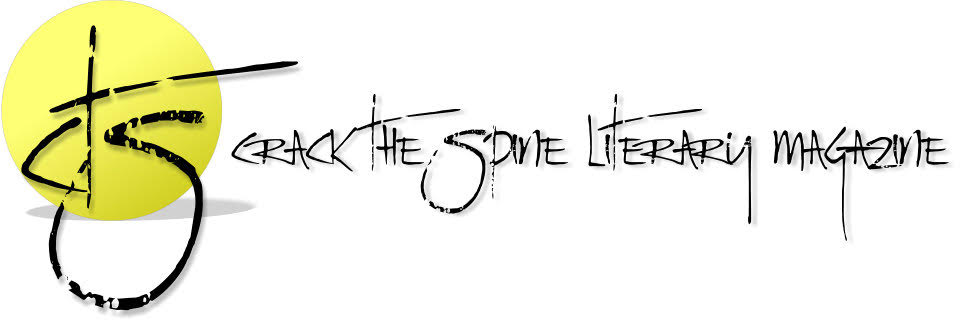 Terry Minchow-Proffitt, 58, St. Louis, MO, B.A. in Philosophy, Arkansas State University, M.Div. in Theology, Princeton Theological Seminary, post-graduate study in English, University of Mississippi, and in Christian Spirituality, Washington Theological Union.
Terry Minchow-Proffitt, 58, St. Louis, MO, B.A. in Philosophy, Arkansas State University, M.Div. in Theology, Princeton Theological Seminary, post-graduate study in English, University of Mississippi, and in Christian Spirituality, Washington Theological Union.
The Writer
How long have you been writing?
I’ve been trying to write for most of my adult life, first as a student, then as a pastor for almost thirty years. My deep love for poetry really began to take hold when I left the pastorate seven years ago. That’s when I decided to go all in, to allow myself to be apprenticed by the vision and craft of poetry.
Do you see writing as a career?
Not exactly, more of a calling. Career might imply the making of a living! I take writing seriously, but not as a livelihood. Calling is what I do to stay fully alive. Writing, and poetry specifically, is how I best make sense of the world I’m called to inhabit more fully each day. By getting still enough to risk my thoughts on paper, and to subject myself to the ongoing humility and patience of revision necessary to that risk, I’m most able to be true to how I see the world and seek to live within it.
Do you write full-time?
Yes, except when I’m walking Maya the Wonder Dog, or feeding the chickens, or attending the King Biscuit Blues festival in my hometown of Helena, AR, or retreating at my favorite monastery in Crestone, CO, or fixing dinner while listening to Johnny Cash or Lucinda Williams or Radiohead, or ducking out for Mexican at El Nopal’s or for Chinese at Wan Fu’s. But then again, I often end up writing poems that spring out of all the above, so, yes, I write full-time. On some level, I’m always taking notes.
The Work
Tell us about your work in Crack the Spine.
“Proceedings of the 15th Annual Session of the Rock Solid Association” is a glimpse into a Hard Shell Baptist meeting that’s told primarily from the perspective of a troubled, abusive believer named Deacon Holt.
Is there a main theme or message in this piece?
I’d hazard to guess its theme is one of the fitful struggle for redemption, or at least the hope of redemption.
What inspired you to write “Proceedings of the 15th Annual Session of the Rock Solid Association?”
I’m drawn to and inspired by how small towns and individuals show their grit when up against the odds, how they either do the best they can with what they have, or don’t, or end up muddling through somewhere in the middle. This poem issued out of a time when I was intently trying to listen to the vernacular of my upbringing. To hear that familiar voice again and follow it wherever it led. Given all the time I spent as a child and youth attending Baptist and Pentecostal churches, I’m not surprised that this poem led me to a religious setting.
How long did it take you to complete this work?
I started this poem last summer, June 27, while on retreat in southern Colorado at the Carmelite monastery mentioned above. I finished it on July 9.
Anything else you’d like to share about your work in Crack the Spine.
This one seemed to strike a peculiar chord for readers. Some drr it as a very literal, almost journalistic, rendering of a church service. I wanted to be concrete, of course, but see it as layered and, well, ambiguous. Religion can spark and justify all sorts of craziness. Still, I sense in this poem a tender resolve, a kind of willingness swelling up amidst all the harsh willfulness. This naked intent in Deacon Holt makes me hopeful. At least that’s where I’m taken.
Tell us about another project you are currently working on.
I’m in deep putting together a collection of “Delta” poems. Though I was born in Flint, MI, I grew up in eastern Arkansas, the Mississippi Delta home of my parents, where I lived at different times in the small towns of Helena, Jonesboro and Dyess (known best as the boyhood home of Johnny Cash).
What inspired this latest work?
When I began to write poetry, this native land and its people rose up as a large part of my muse. With the wise assistance of my daughter, a fine graphic artist, I’m hoping to combine these poems with a number of photos I’ve taken over the years. I’m very eager to see how this one turns out.
Where/When can we find this work?
It’ll be released sometime early in 2016, probably by Middle Island Press, who published my debut chapbook, Seven Last Words, last February.
The Methods
How often do you write?
Most every day.
Where do you write?
In my loft study/library.
What time of the day makes you most productive?
I find mornings to be the most productive. I see writing as one way that I pray, that is, how I seek to cultivate a lived intimacy with the often hidden, and always gracious, depth of life. Most mornings I end up either writing my way into a more formal time of prayer, study and meditation, or I begin on the more explicitly religious end, with more formal prayers, and allow them to lead into whatever I’m writing. Stillness and solitude are essential, as both the alpha and omega. I’m an introvert, but not necessarily a hermit. I’m simply trying to listen and write out of a quiet and willing space, to listen. That’s a pretty high bar, no doubt, but the aspiration itself tethers and vitalizes my writing and life.
How do you react to editorial rejections of your work?
My stumbling attempts at spirituality help me to keep things in perspective. When the rejections come, it’s disappointing, but I’m better able to press on, knowing that the everyday beauty and discipline of what I’m pursuing is more valuable than getting published. Still, rejections pretty much suck.
How do you react when one of your submissions is accepted for publication?
All acceptances are great occasions for doing the Watusi and going out for Mexican.
The Madness
What is your favorite book?
Music of the Swamp by Lewis Nordan
Who is your favorite author?
Cormac McCarthy
If you could have dinner with one fictional character, who would it be and why?
Rev. John Ames, from Marilynne Robinson’s Gilead. I’d love to talk to him about his lifelong ministry and compare notes. (However, if I could have dinner with a writer, I might choose Cormac McCarthy. I’m not sure how that would go. I get the sense that he wouldn’t talk much and I wouldn’t know what to say. I’d be like Chris Farley on SNL: “Um . . . remember in Blood Meridian where you wrote ‘In the days to come the frail black rebuses of blood in those sands would crack and break and drift away so that in the circuit of few suns all trace of the destruction of these people would be erased. The desert wind would salt their ruins and there would be nothing, nor ghost nor scribe, to tell to any pilgrim in his passing how it was that people had lived in this place and in this place died.’ Remember that?” Cormac (we’d be on a first-name basis) just stares at me. Then I’d say, “Um . . . that was AWESOME!!”)
What is the greatest occupational hazard for a writer?
Vacuuming and dusting when the writing gets tough. My house is pretty spiffy.
Who would play you in the film of your life?
For a long time I might have chosen Paul Newman’s character in Cool Hand Luke. Something about that opening scene when he’s arrested for cutting the heads off of parking meters. But these days I’d prefer to have Bill Murray. I love the playful way he carries himself, both on and off screen. There’s a kind of ironic authenticity, something seriously light that I adore.
Who makes you laugh?
Louis C.K.
What makes you cry?
Johnny Cash’s cover/video of “Hurt.”
What’s in that cup on your desk?
Green Tea
What is the most beautiful thing you’ve ever seen?
My son and daughter, whenever I see them.
Additional Reading on Terry
